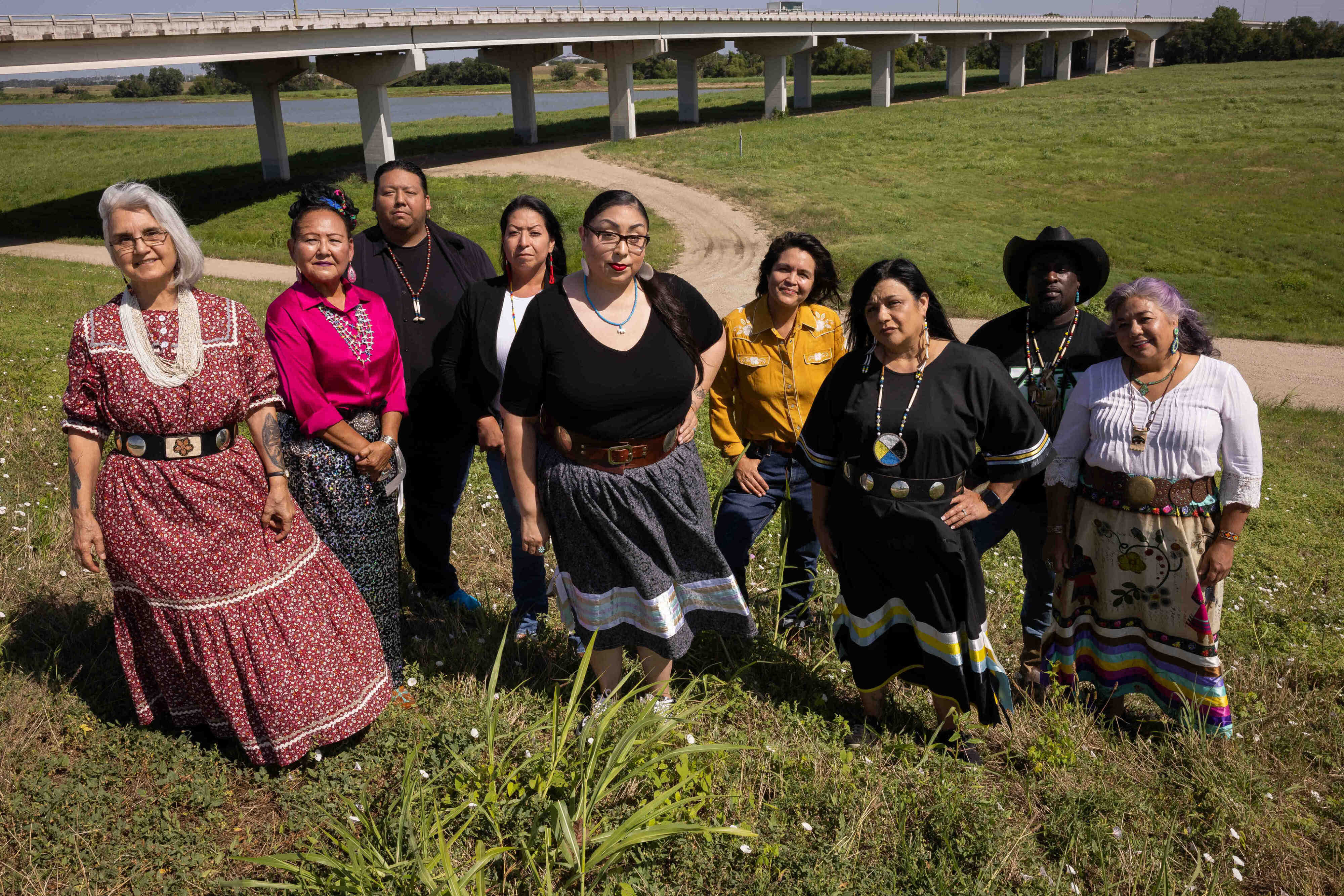Dallas Honors Native American Tribes with Three Lakes in West Dallas

A New Chapter in Dallas’ Native American Heritage
In a significant move that honors the deep roots of Native American history in the region, three quiet pools of water nestled between highways and neighborhoods along the Trinity River will now bear names that reflect the cultural legacy of the area’s Indigenous peoples. The Dallas City Council recently took a historic step by unanimously approving the names for these lakes, which were proposed by a grassroots intertribal committee. This decision marks a meaningful shift in recognizing the long-standing presence and contributions of Native American communities in Dallas.
The lakes have been officially named as the Three Sisters Lakes, with each individual lake carrying a name rooted in the languages of different tribes. These names are Comanche NʉmʉNahmi (Nuh-muh-nah-me) Lake, Lipan Apache Mbáti (M-bAH-tee) Lake, and Wichita ita:iʔh (Ee-dotzh-ee) Lake. Each of these names translates to "sister" in its respective tribal language, symbolizing unity and shared heritage among the various Indigenous groups.
A Commitment to Cultural Recognition
The intertribal committee, composed of local Native leaders and representatives from multiple tribal nations, played a crucial role in ensuring that the names chosen accurately reflect the region's rich Native American history and spiritual connection to water. Jodi Voice Yellowfish, founder and chair of the Missing and Murdered Indigenous Women Texas Rematriate, emphasized that this initiative goes beyond mere naming. “It’s about making visible what has long been ignored,” she said. “It’s about the people who were here before Dallas was Dallas — and who are still here.”
Voice Yellowfish, who is Muscogee Creek, Oglala Lakota, and Cherokee, highlighted the importance of acknowledging the past while also looking toward the future. Her words resonate with many in the community who have felt the absence of their cultural identity for generations.
A History of Resilience
The lakes are located in West Dallas, a neighborhood that carries a layered history of Native American relocation. In the mid-20th century, federal policies aimed at assimilation led to the displacement of Native families from reservations to urban centers, including Dallas. Antonio Pahcheka Valdez, a Comanche Nation member and co-founder of the Intertribal Community Council of Texas, shared his family’s experience of being relocated. “It was meant to remove us from our culture. But it didn’t work. We found each other. We built community.”
This sense of community and resilience has allowed many Native Americans to establish a strong presence in West Dallas, transforming it into a second homeland for many. The lakes, formed through flood control and development efforts, now sit on this very land, symbolizing a connection to the past and a promise for the future.
The Sacredness of Water
The naming of the lakes draws inspiration from the concept of the “Three Sisters” in Native American cultures—corn, beans, and squash—which grow best when cultivated together. This metaphor resonated deeply with the committee, especially given the lakes' perceived feminine energy and the cultural reverence many tribes hold for water. Robin Williams, tribal historic preservation officer of the Wichita Affiliated Tribes, noted the sacredness of water and its connection to life. “We carry life in water for nine months. Water is everywhere. It is life.”
The naming process became an act of unity across various tribes, including the Comanche, Lipan Apache, Wichita, and Caddo. Bernard Barcena, chairman of the Lipan Apache Tribe of Texas, emphasized the tribe's deep-rooted presence in the region. “Our ancestors hunted, traded, and traveled throughout what is now Dallas long before the city was established.”
Reclaiming Identity and Legacy
For many Native Americans, the recognition of these lakes represents a long-overdue acknowledgment of their heritage. Diana Parton, a citizen of the Caddo Nation and board member of Friends of Caddo Mounds, shared her personal experience of growing up without knowledge of her cultural roots. “Had I known, even just that, it would’ve filled in something hollow in me.”
Parton expressed hope that future generations will not face the same sense of disconnection. “I don’t want any Comanche, Lipan or Wichita child to grow up feeling the way I did,” she said. “Even if they don’t know anything else about their nation, knowing they’re standing on their people’s land will strengthen them.”
Moving Forward Together
The city’s transportation and water departments are currently working on new signs for the lakes. During the City Council vote, members emphasized the need for plaques or visual markers that explain the origins and meaning behind each name. Marco Saucedo, a liaison for District 6 council member Laura Cadena, mentioned that efforts are underway to set a date for the inauguration of these plaques.
Angel Faz, an artist in West Dallas, noted that the committee sees this as just the beginning of a broader movement for recognition. “This isn’t the end of the story,” said Jodi Voice Yellowfish. “It’s a starting point. We want each tribe’s history to be told accurately.”
In a city where many streets, schools, and parks bear the names of colonizers, this act of renaming offers a quiet but powerful reversal. As Robin Williams of the Wichita Affiliated Tribes stated, “It’s not just symbolic. It’s ancestral. It’s identity. It’s healing.”
Post a Comment for "Dallas Honors Native American Tribes with Three Lakes in West Dallas"
Post a Comment